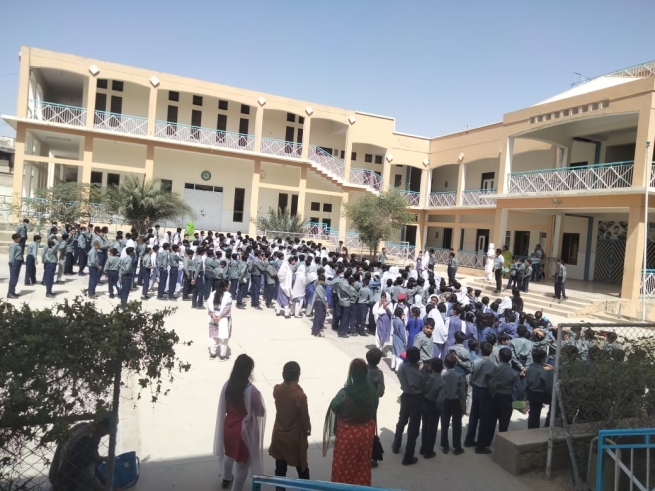In Lahore, a commercial reverse osmosis purification system was added on the roof of Don Bosco Technical School along with a water tank and pump. An old water system was also repaired on the roof of the hostel and the Salesian residence. In Quetta, the project provided water dispensers and a demineralizer with an adequate capacity.
Naveed, a student, said, “I am studying electrical DAE in the Don Bosco Technical Center. I really like the water from the new purification plant. Thank you very much.”
Salesian schools in Quetta and Lahore offer quality education and an innovative teaching style. Salesians first started providing education in Pakistan in 1998, and today, their educational centers are considered some of the best education in the country.
Salesian schools provide economic benefits, scholarships and accommodations for students from the poorest families so that education is not only accessible but also an incentive for parents to send their children to school. Pakistan has one of the lowest literacy rates in South Asia at less than 50 percent. Although the country’s constitution acknowledges free and compulsory education between the ages of 5-16, the rule is often not followed in rural areas for those over 13.
According to the World Bank, 31.3 percent of people living in Pakistan fall below the poverty line. Gender plays a role in poverty in the country. Pakistan has traditional gender roles that define a woman’s place in the home and not the workplace. As a result, access to education is challenging for girls and society investments are less. There are few opportunities for women and girls in the country outside of traditional roles. This is evidenced by the disparities in education including the literacy rate.
Source: Salesian Missions


